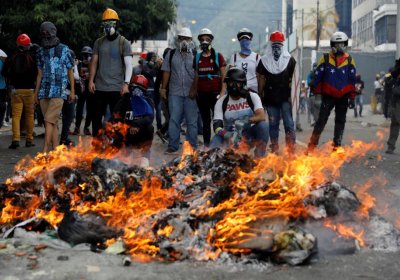Venezuela’s National Constituent Assembly (ANC) has denied permission to one of its grassroots delegates to stand as a mayoral candidate in the upcoming December 10 municipal elections.
Angel Prado was elected to the ANC on July 30 as a territorial delegate for his municipality of Simon Planas. Prado is also a leading member of the El Maizal commune in Lara state.










 Statue of Guaicaipuro. Photo: Correo del Orinoco.
A statue of Caribe indigenous resistance hero Guaicaipuro was unveiled on October 12 by Venezuelan President Nicolas Maduro to commemorate the Day of Indigenous Resistance.
Guaicaipuro, an indigenous chief of the Caribes, led one of the most successful resistance campaigns against invading Spanish colonial forces throughout the 1560s and is revered by many of Venezuela’s grassroots movements.
Statue of Guaicaipuro. Photo: Correo del Orinoco.
A statue of Caribe indigenous resistance hero Guaicaipuro was unveiled on October 12 by Venezuelan President Nicolas Maduro to commemorate the Day of Indigenous Resistance.
Guaicaipuro, an indigenous chief of the Caribes, led one of the most successful resistance campaigns against invading Spanish colonial forces throughout the 1560s and is revered by many of Venezuela’s grassroots movements.
